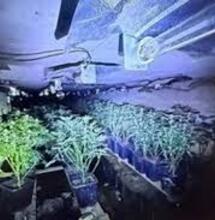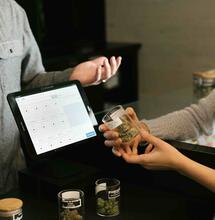David Nutt Says Legalising Cannabis Would Curb Alcohol Use 'By A Quarter'

The government's former chief drugs adviser Professor David Nutt has claimed that legalising or decriminalising cannabis would cut alcohol consumption by a quarter.
The government's former chief drugs adviser Professor David Nutt has claimed that legalising or decriminalising cannabis would cut alcohol consumption by a quarter.
Giving evidence to MPs on Tuesday morning Nutt, who was sacked by the Labour government in 2009 for opposing ministers' decision to upgrade Cannabis from a class C to class B drug - reiterated his claim that smoking weed was less harmful than drinking alcohol.
"A regulated market for those drugs is the best way forward," he claimed. "Cannabis is not safe, but in population terms but I believe that kind of regulation would have a net benefit on public health."
"I think you might find you might reduce alcohol consumption by a quarter if you went with a Dutch model," he concluded.
Professor Nutt, now an international adviser on drug use, suggested that politicians were ignoring scientific evidence on the health implications of taking drugs. He characterised the political parties as trying to appear "macho" and seeking to "score political points" over each other by their tough stances on drugs.
MPs on the Home Affairs committee are conducting an inquiry into drugs policy, after recent official figures showed that while drug use has been declining steadily since 2000, drinking alcohol has rocketed over the same period, particularly among young people.
Despite these figures the committee appeared highly sceptical about Professor Nutt's claims, repeatedly challenging him to explain why relaxing drugs laws would be anything other than irresponsible.
Nutt also criticised the government for refusing to allow recreational drugs for therapeutic purposes, saying that a study into the use of MDMA - the active ingredient in Ecstasy - was showing encouraging results in the treatment of post-traumatic stress disorder among Army veterans. "The trouble is no doctor would ever be allowed to prescribe it," he said.
"Most of the interesting drugs are on [the most-restricted category] schedule 1 and it's almost impossible to explore their benefits," he added.
They also heard from Professor Les Iversen, the current chair of the Advisory Council on the Misuse of Drugs, who suggested that the penalties for drug possession should be reduced, because young people were getting criminal records which made it difficult for them to get jobs and mortgages.
He also said that most of the legal highs currently in circulation were being produced in China, and suggested that the government should consider changing the law to make it easier for new variants of the same drug to be classified more quickly.
Ministers are concerned that Parliament is constantly playing catch-up with new legal highs, and are considering changing the system so legal highs with very similar ingredients to previously-banned drugs are automatically treated as a restricted substance.
http://www.huffingtonpost.co.uk 19/06/2012



